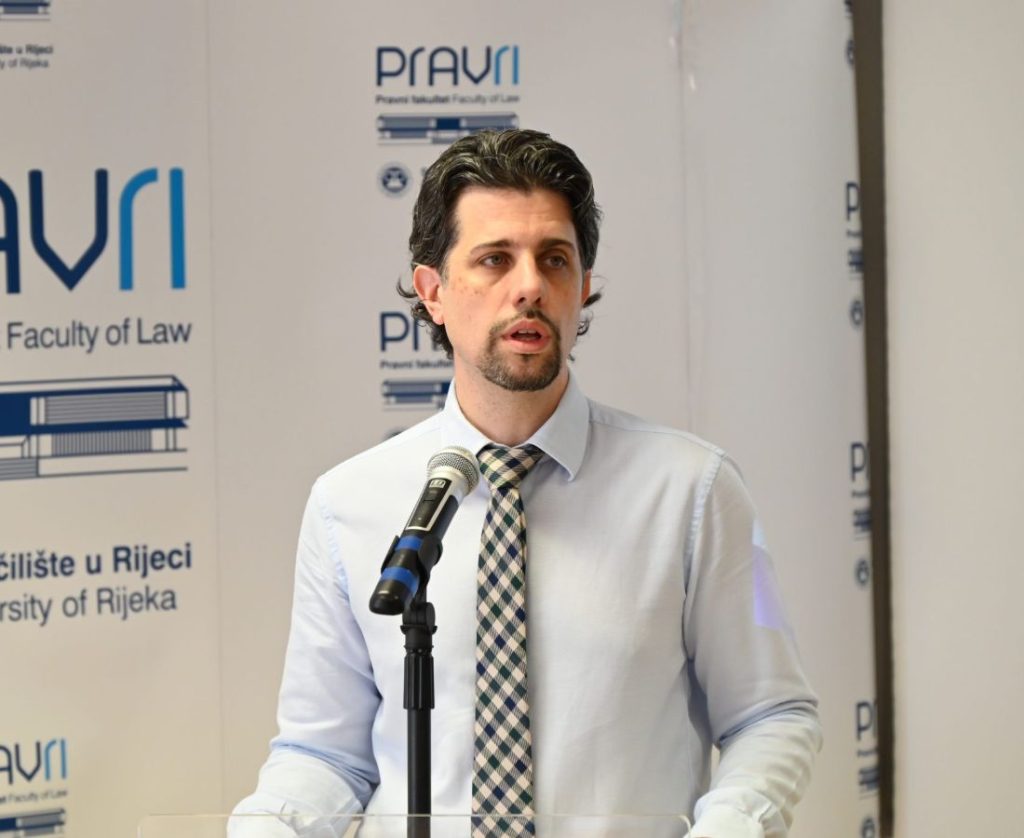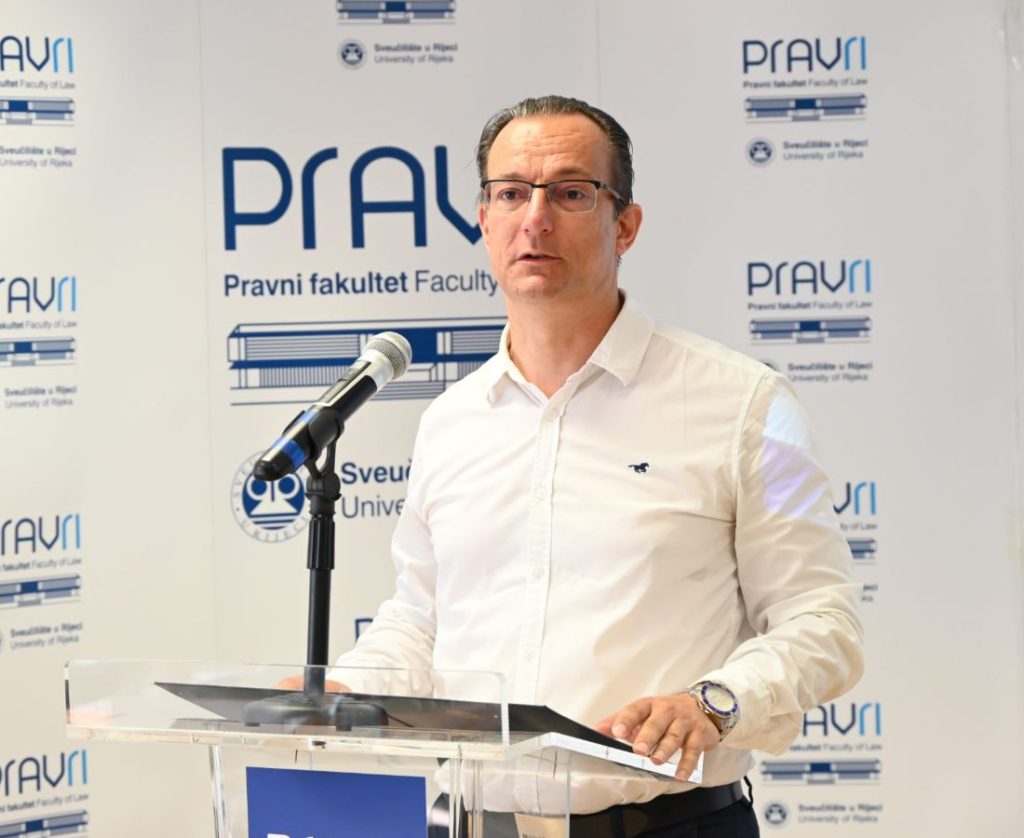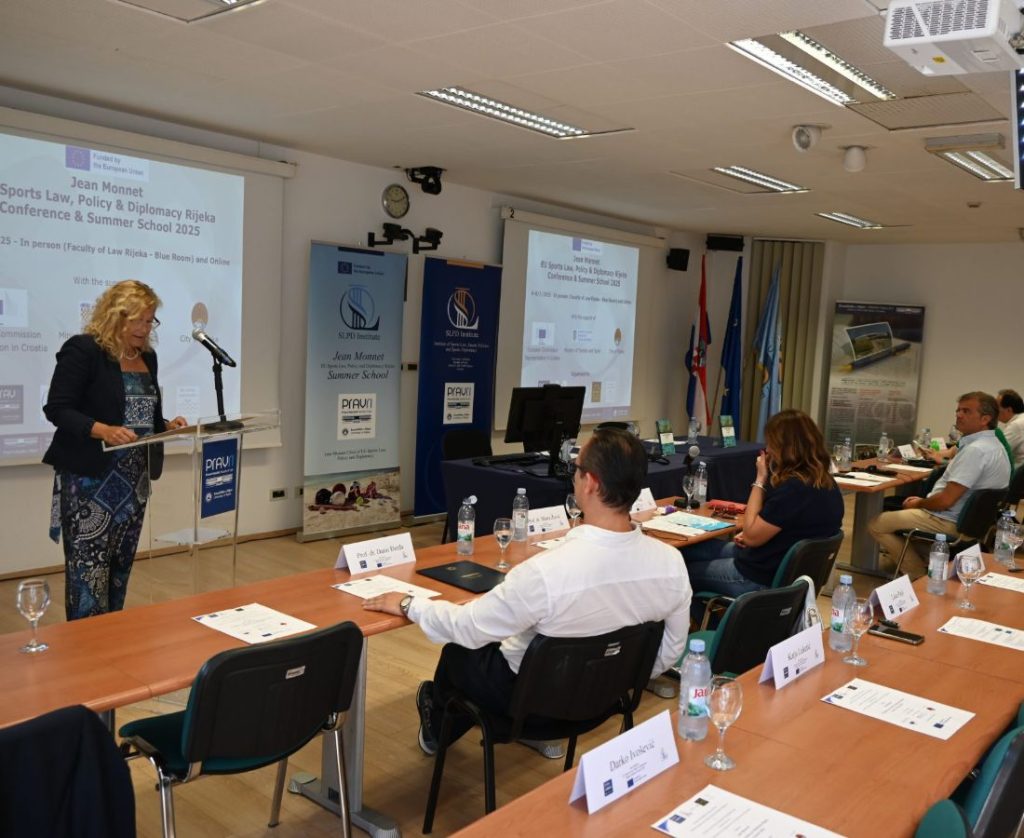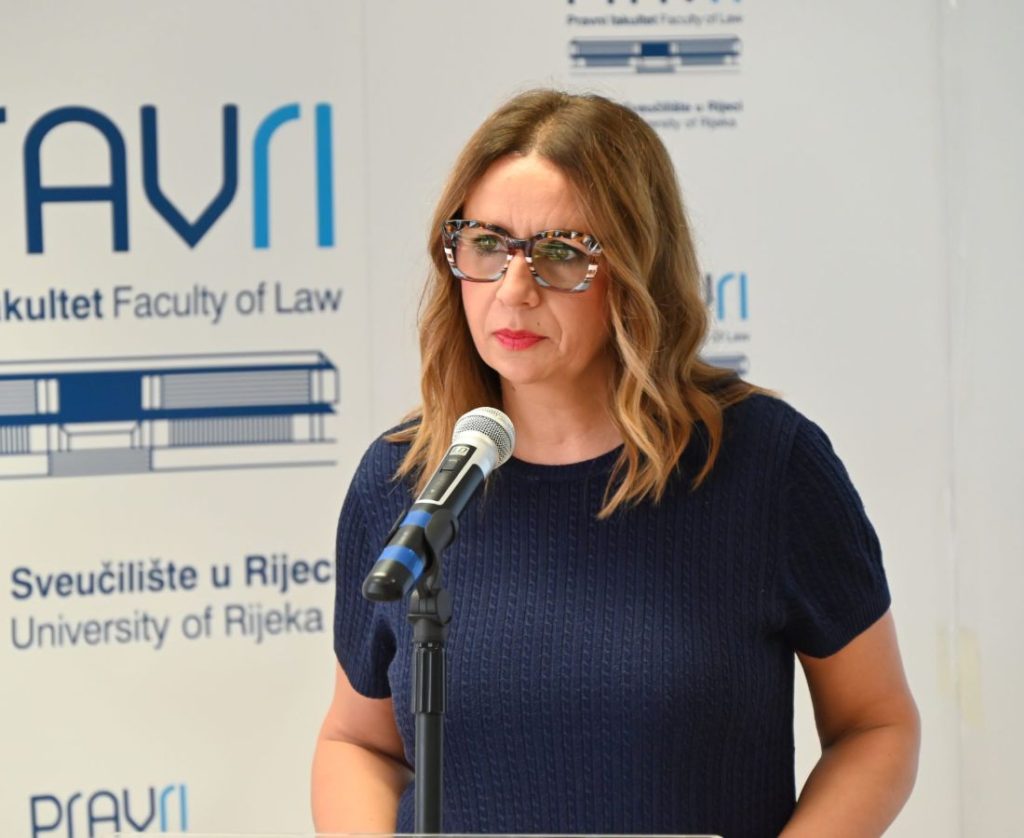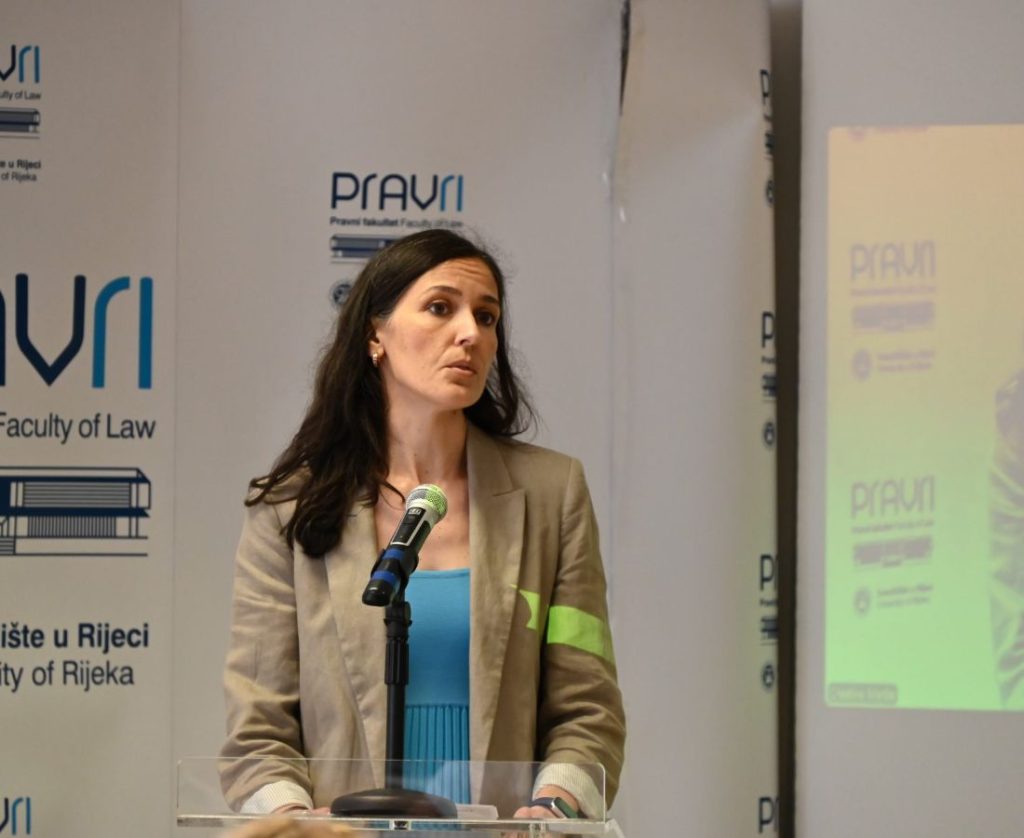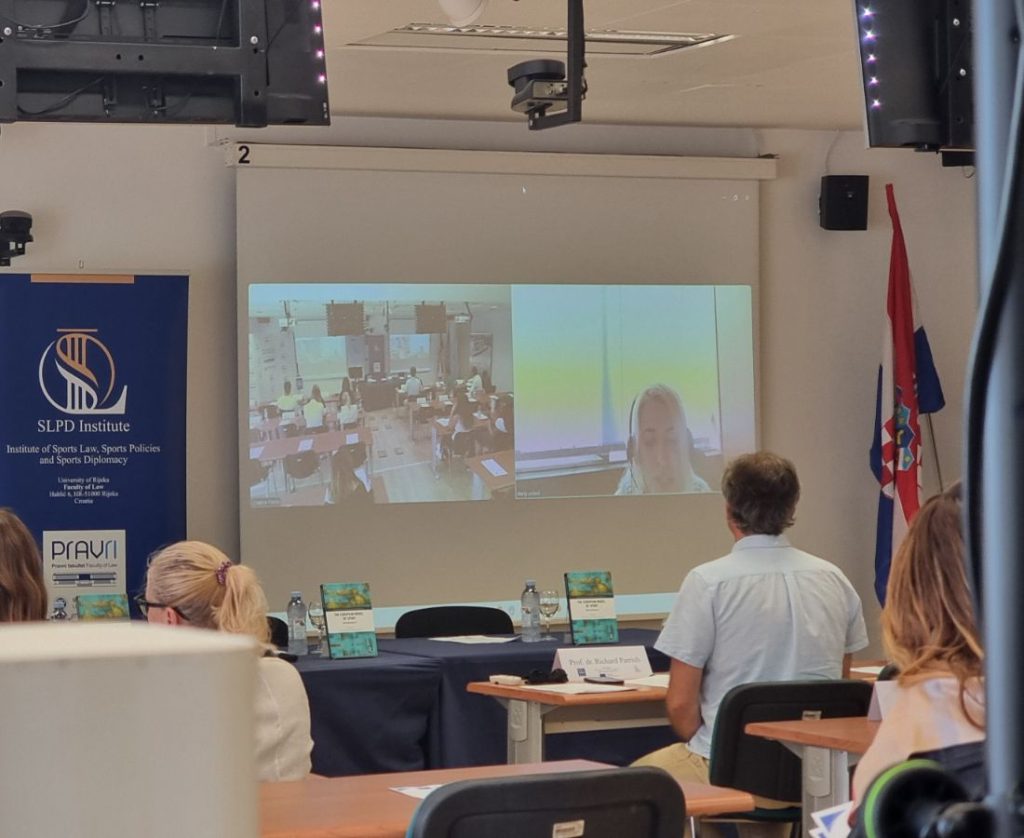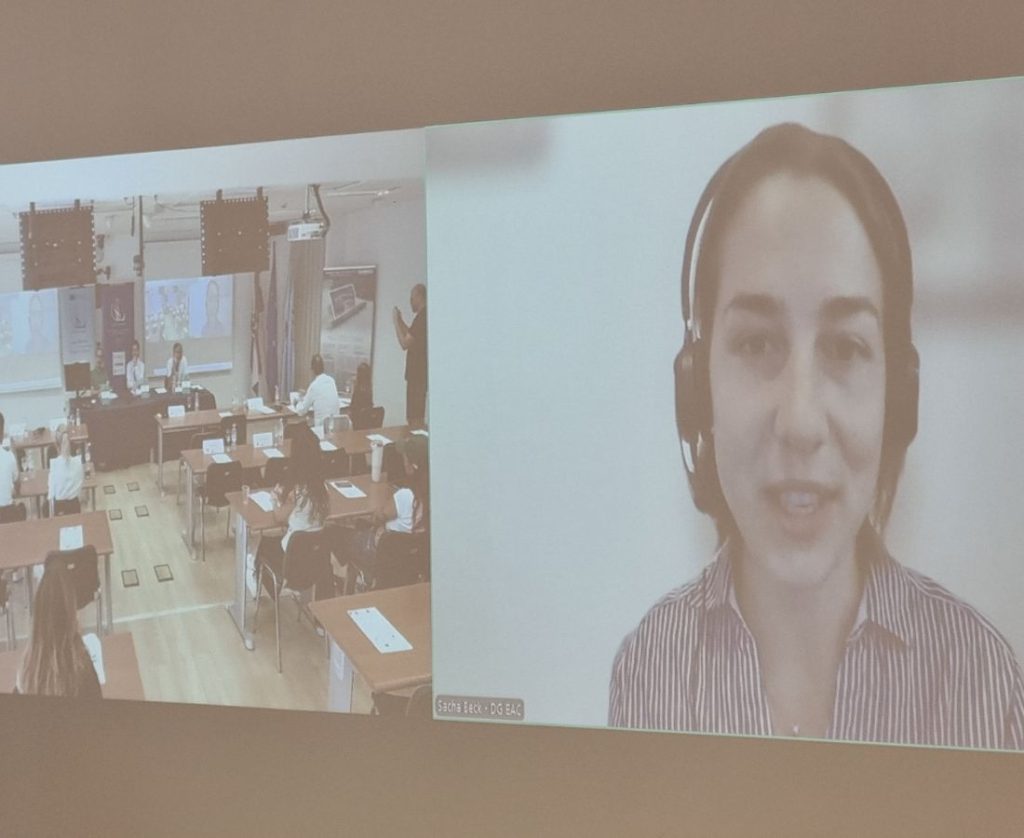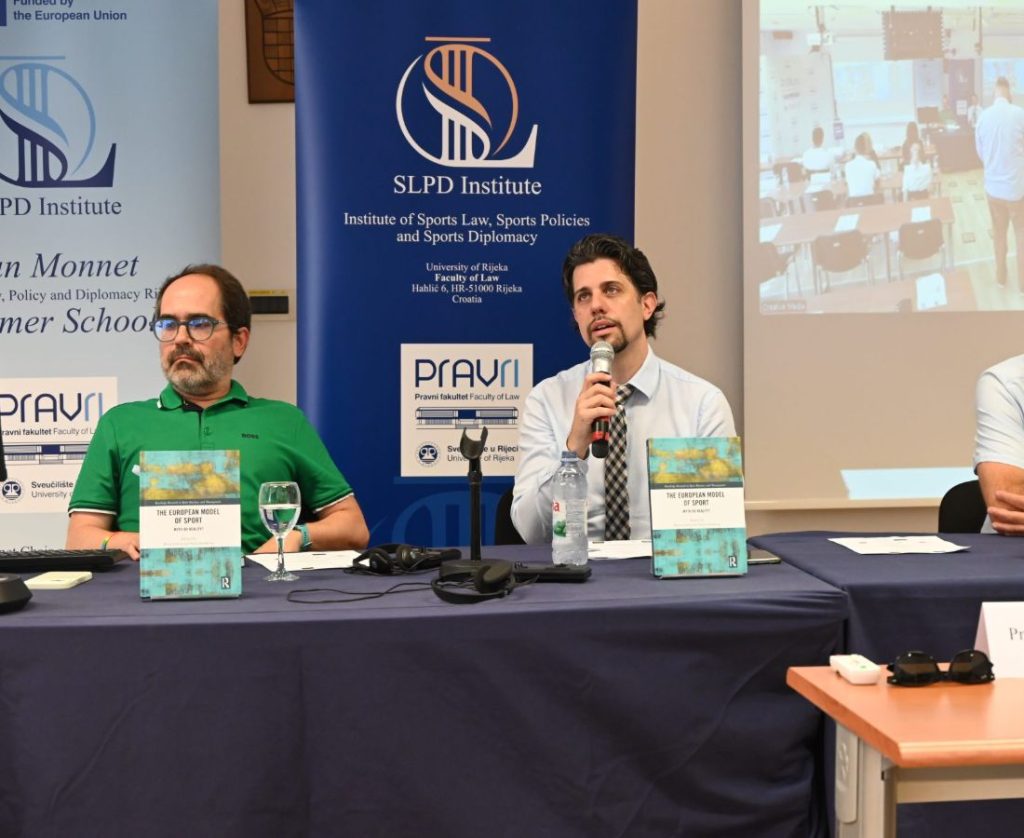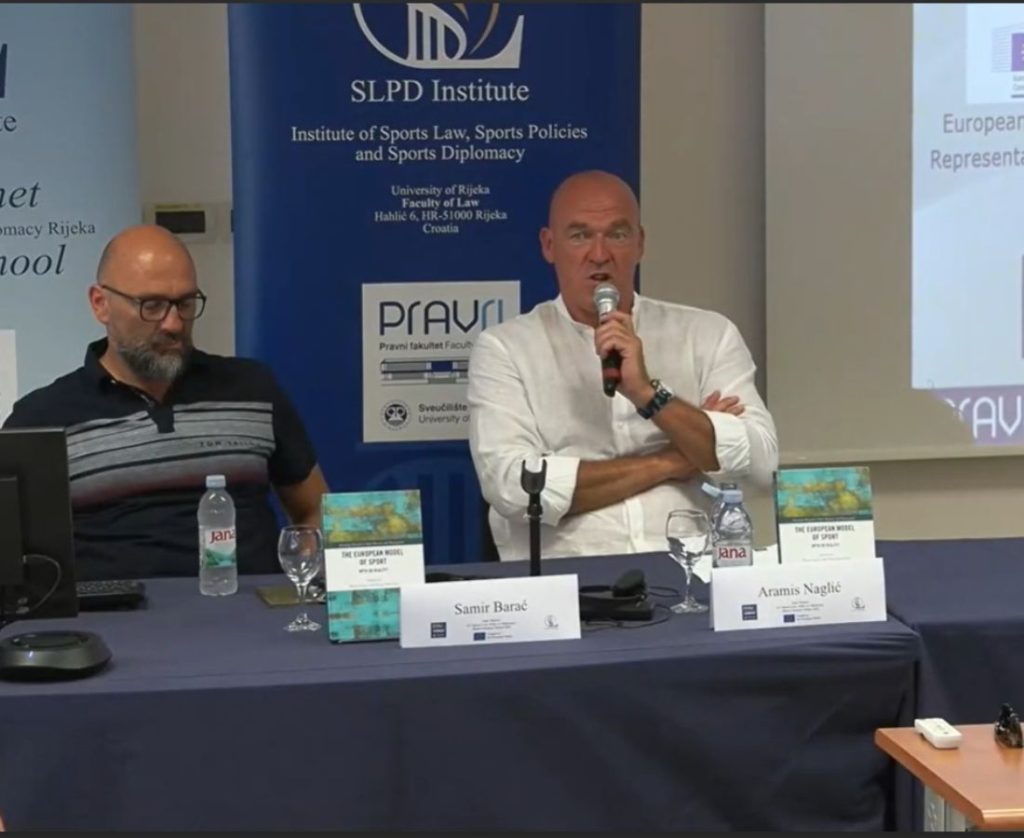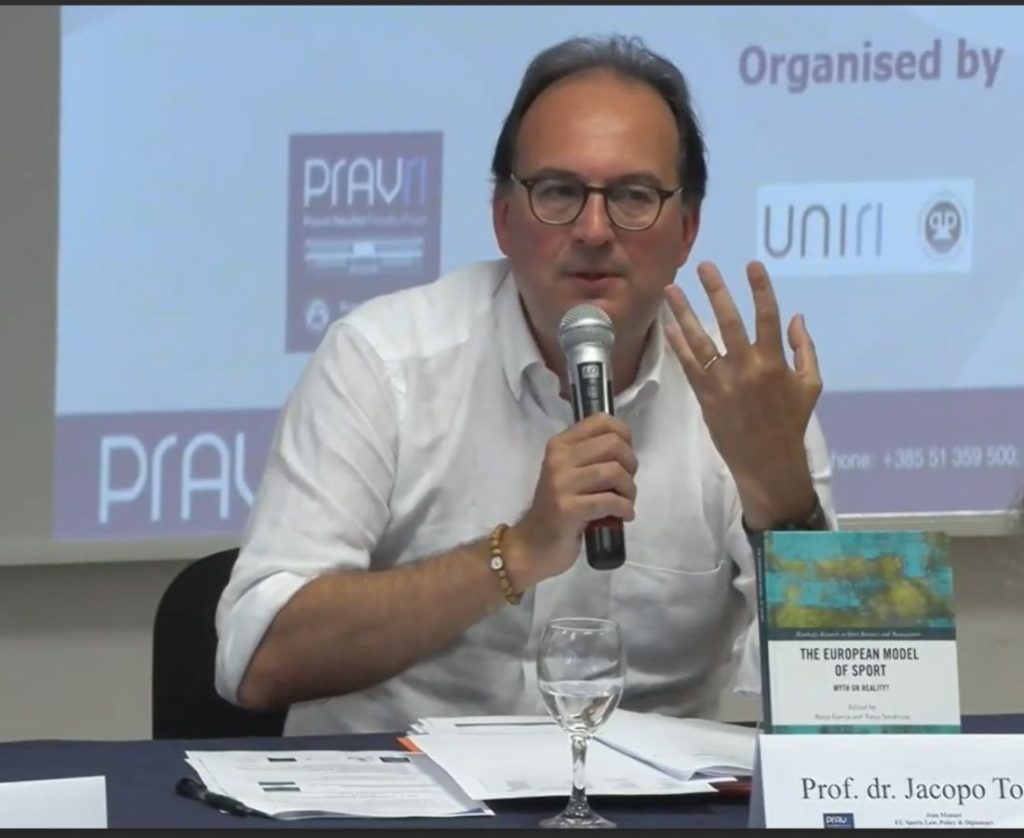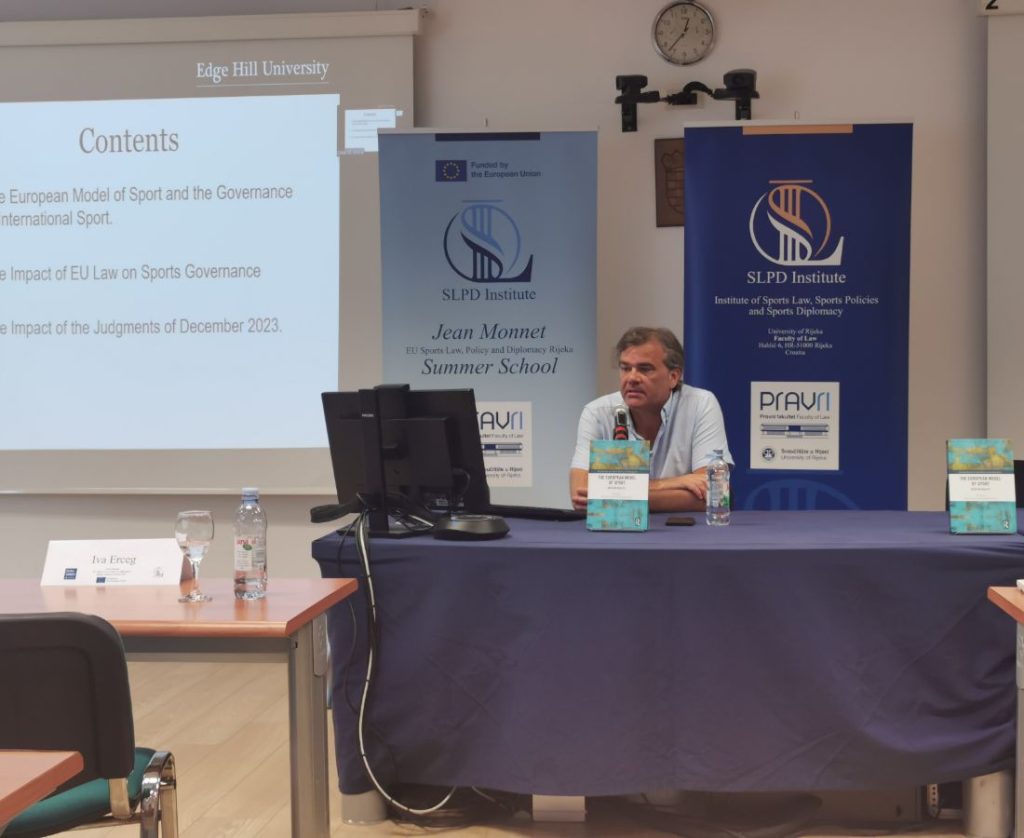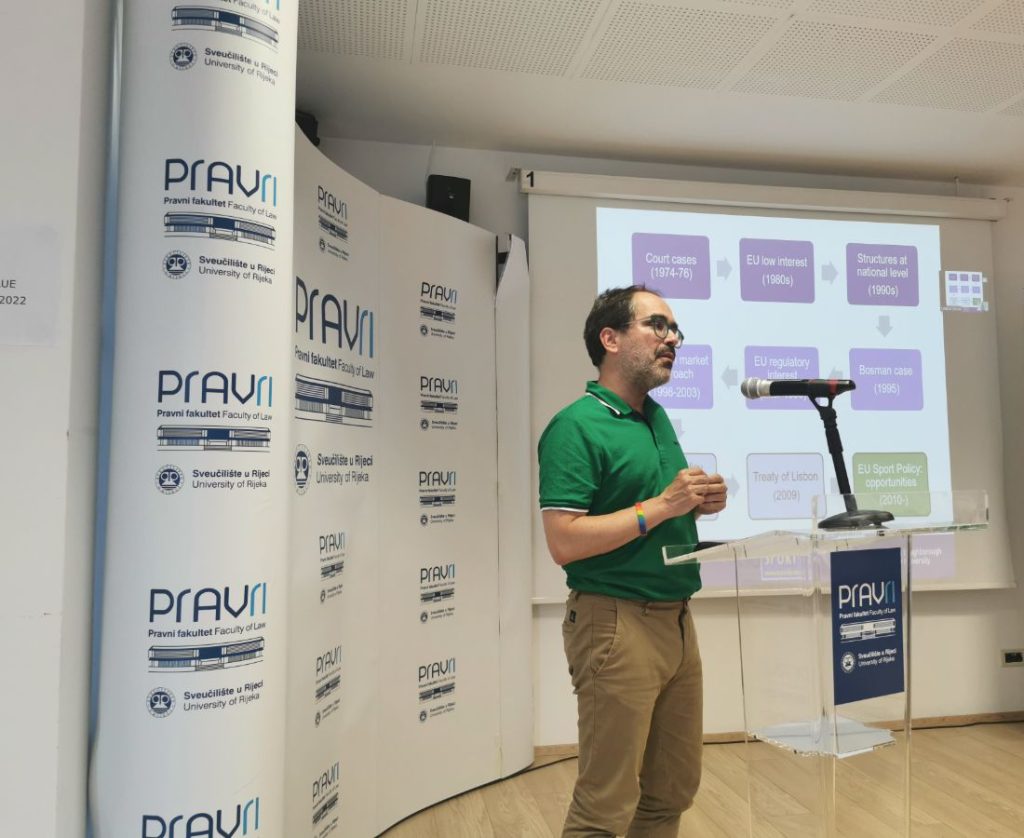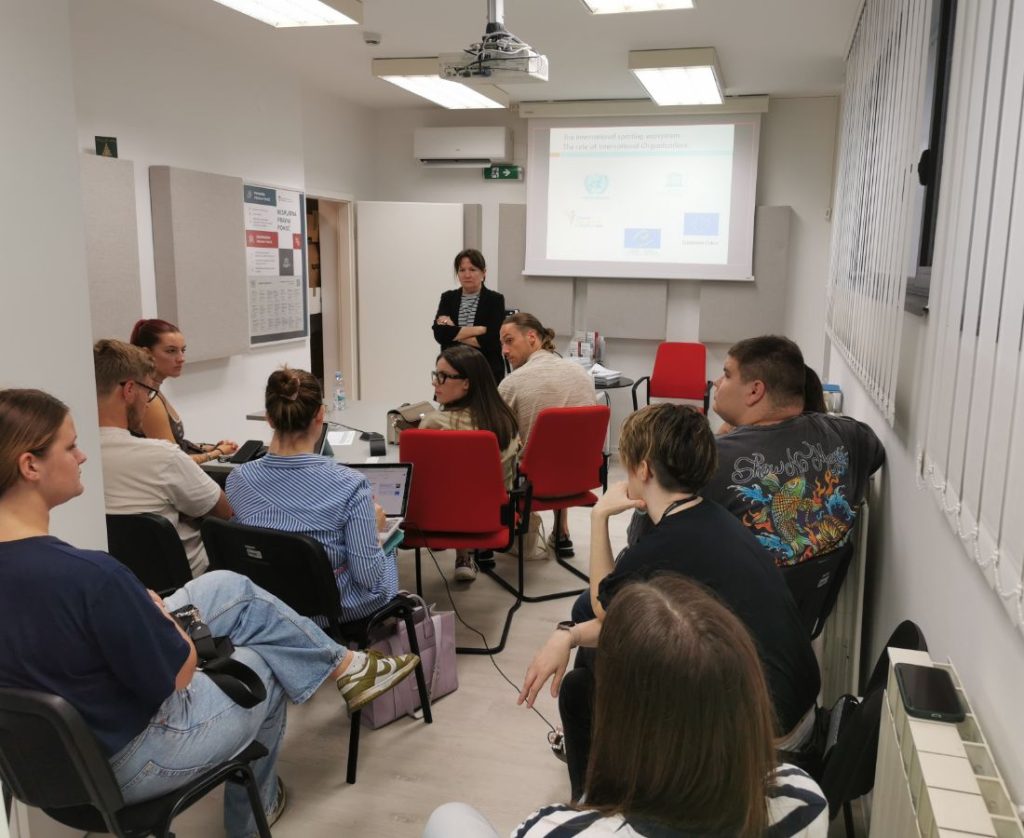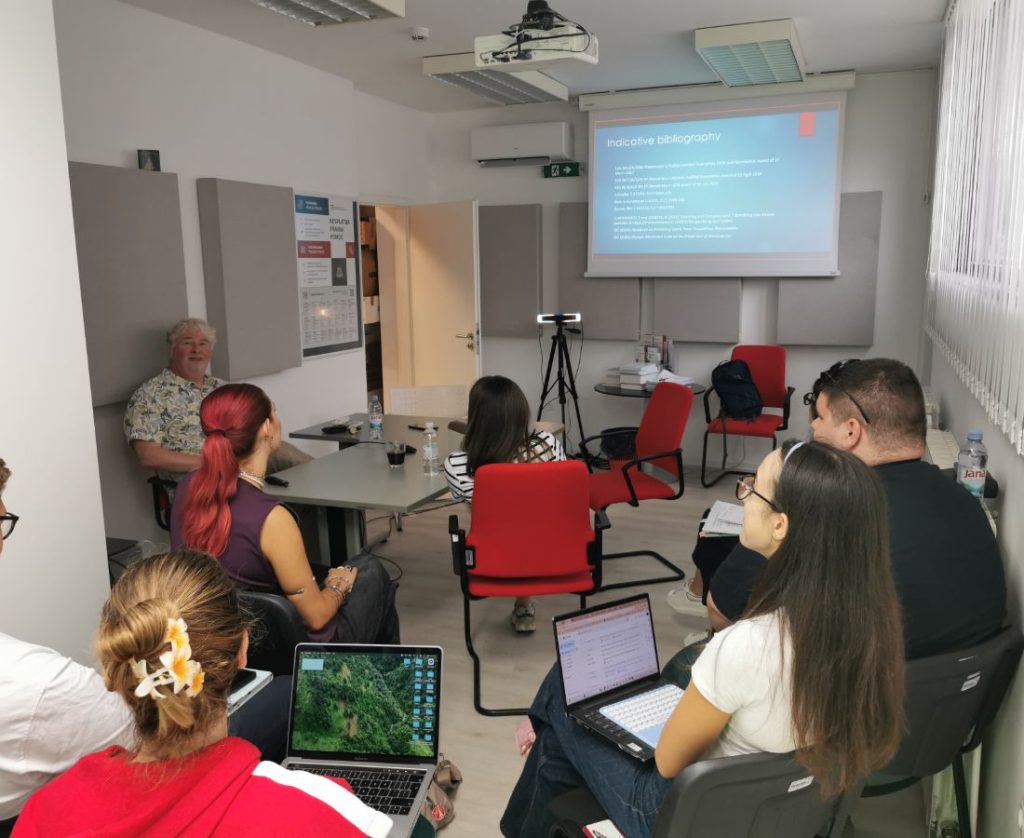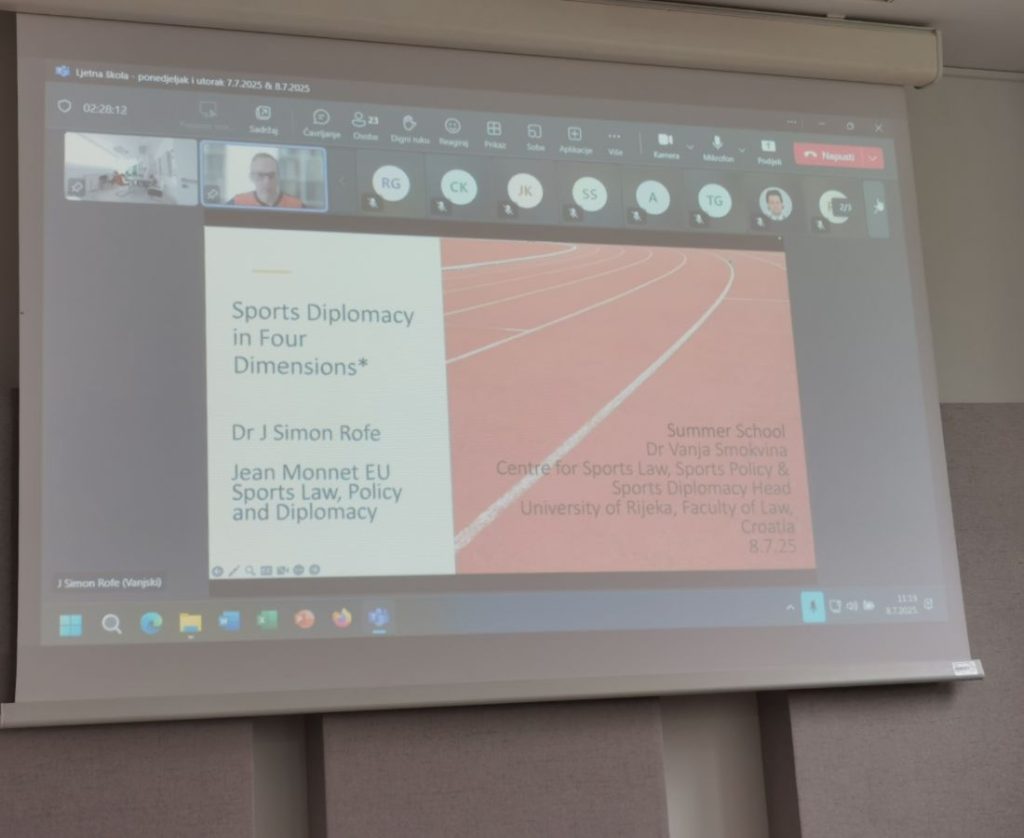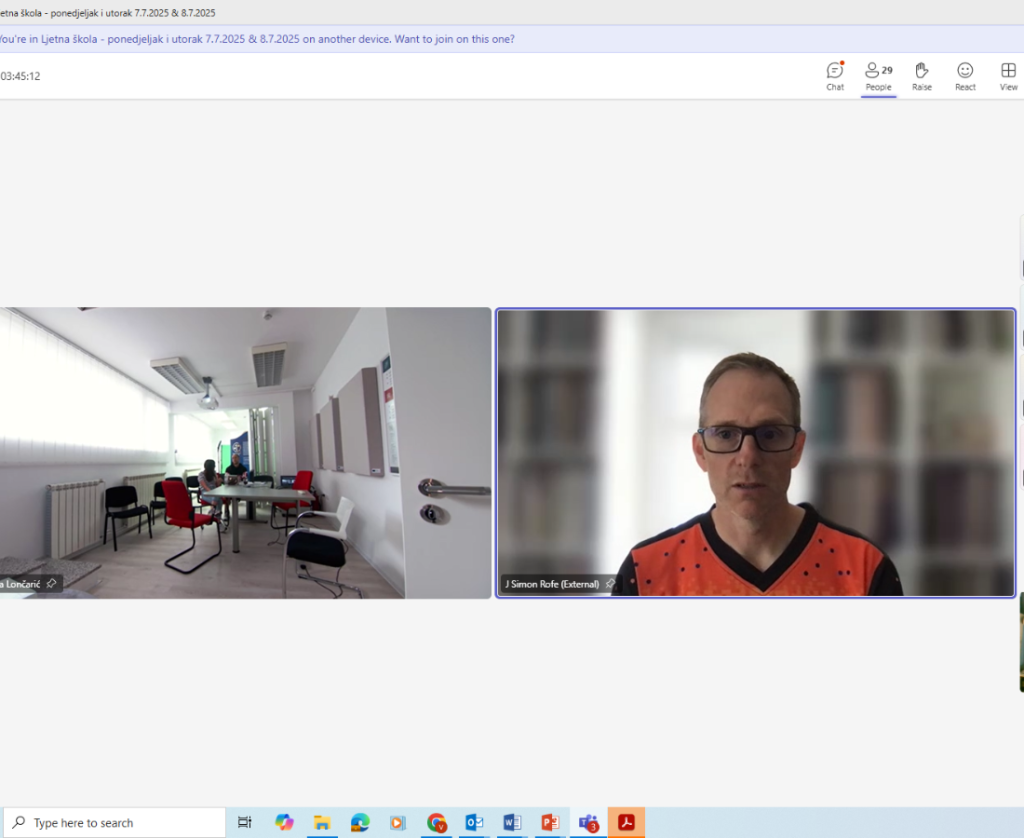From 4 to 8 July 2025, the 8th edition of the Rijeka Sports Law, Sports Policy and Sports Diplomacy Dayswas held at the University of Rijeka, Faculty of Law.
On Friday, 4 July 2025, the Jean Monnet International Conference was held, which was opened with welcoming speeches by: Interim Vice-Rector for Studies, Students, and QA of the University of Rijeka, Prof. Dr. Marta Žuvić; Dean of the Faculty of Law of the University of Rijeka, Prof. Dr. Dario Đerđa, Head of the Administrative Department for Education, Sports, Culture and Youth of the City of Rijeka, Iva Erceg, and Assoc. Prof. Dr. Vanja Smokvina from the Faculty of Law, also the organizer of the event. On behalf of the “Jean Monnet” Interuniversity Center of Excellence Opatija, Assoc. Prof. Dr. Adrijana Martinović addressed the event. On behalf of the Ministry of Tourism and Sports of the Republic of Croatia, Marija Jurčević, Head of the International Cooperation Service, opened the Event officially.
The Event began with the opening of the Jean Monnet EU Sports Law, Policy & Diplomacy Rijeka Summer School (an accredited lifelong learning programme at the University of Rijeka with 4 ECTS credits) – and an international conference dealing with three areas: sports law, sports policies and sports diplomacy, all within the framework of a project approved by the European Commission, the Jean Monnet Chair in EU Sports Law, Policy and Diplomacy. Thus, on behalf of the European Commission, the attendees were welcomed by Sacha Beck from the Sport Unit of the European Commission, who was also the introducer of the first part of the event – the presentation of a book published by the prestigious British publisher Routledge (Taylor & Francis) on the European model of sport – The European Model of Sport – Myth or Reality?, edited by Dr. Borja Garcia (Loughborough University, UK) and Assoc. Prof. Dr. Vanja Smokvina from the Faculty of Law in Rijeka. The book was published at the end of June and provides an interdisciplinary overview of the European model of sport, through several perspectives, as well as a comparison with sports models North America, Africa, China and other parts of the world. The value of the book is that it is the first ever comprehensive work on the sports system in Europe, which has become extremely relevant again due to recent decisions by the European Court of Justice in Luxembourg, primarily due to changes brought about by decisions on the Super League or the FIFA transfer system. The book was introduced by the editors and Prof. Dr. Richard Parrish (Edge Hill University, UK), author of one of the chapters.
This was followed by a round table at which, after an introductory part on the recent development on sports law regarding the latest decisions of the European Court in Luxembourg by Prof. Dr. Jacopo Tognon (University of Padua, Italy), the central part of the day followed – a round table with Olympians: Samir Barać and Aramis Naglić, which discussed the beginnings of Croatian sports in the 1990s, successes, sports diplomacy, promotion of the country through sports and more.
This was followed by lectures as part of the Summer School on Friday, July 4, 2025 by Prof. Dr. Richard Parrish and Dr. Borja Garcia. On Monday, July 7 and Tuesday, July 8, 2025, lectures were held by Prof. Dr. Carmen Pérez González (Universidad Carlos III de Madrid, Spain – YUFE, YERUN network), Prof. Dr. Jürgen Mittag and Dr. Maximilian Seltmann (Cologne Sport University, Germany), Dr. David McArdle (Stirling University Law School, Scotland, UK), Dr. Simon Rofe (University of Leeds, UK), and Assoc. Prof. Dr. Vanja Smokvina.
The Event was held in a hybrid format – live at the Faculty of Law and online and was free for all participants. It was organised under the auspices of the Ministry of Tourism and Sports of the Republic of Croatia and the City of Rijeka with the support of the European Commission Representation in the Republic of Croatia. The Event was attended by more than 120 participants from all over the world, which once again confirmed that Rijeka and the Faculty of Law in Rijeka were the central place for discussions on sports law, sports policies, and sports diplomacy.


